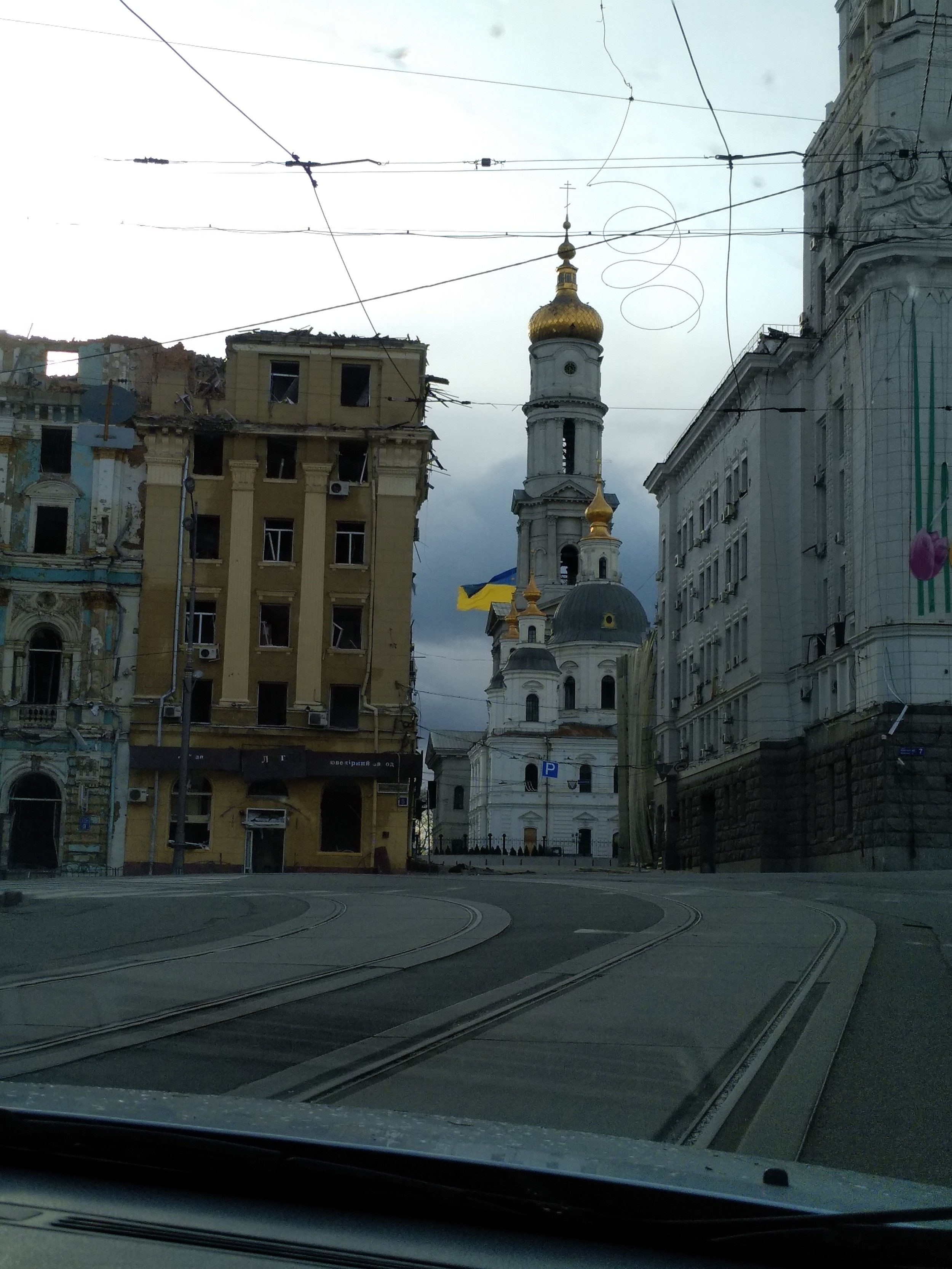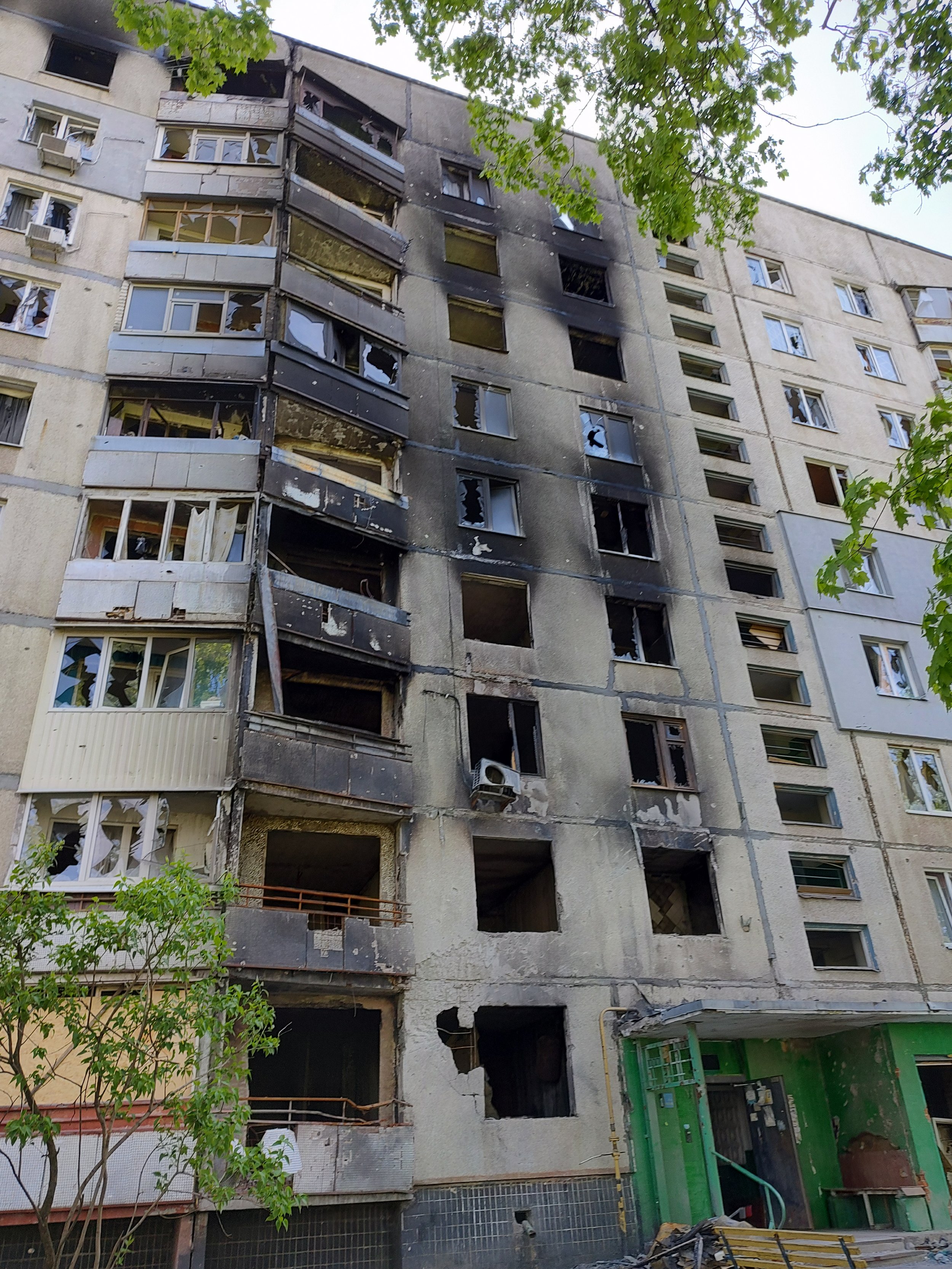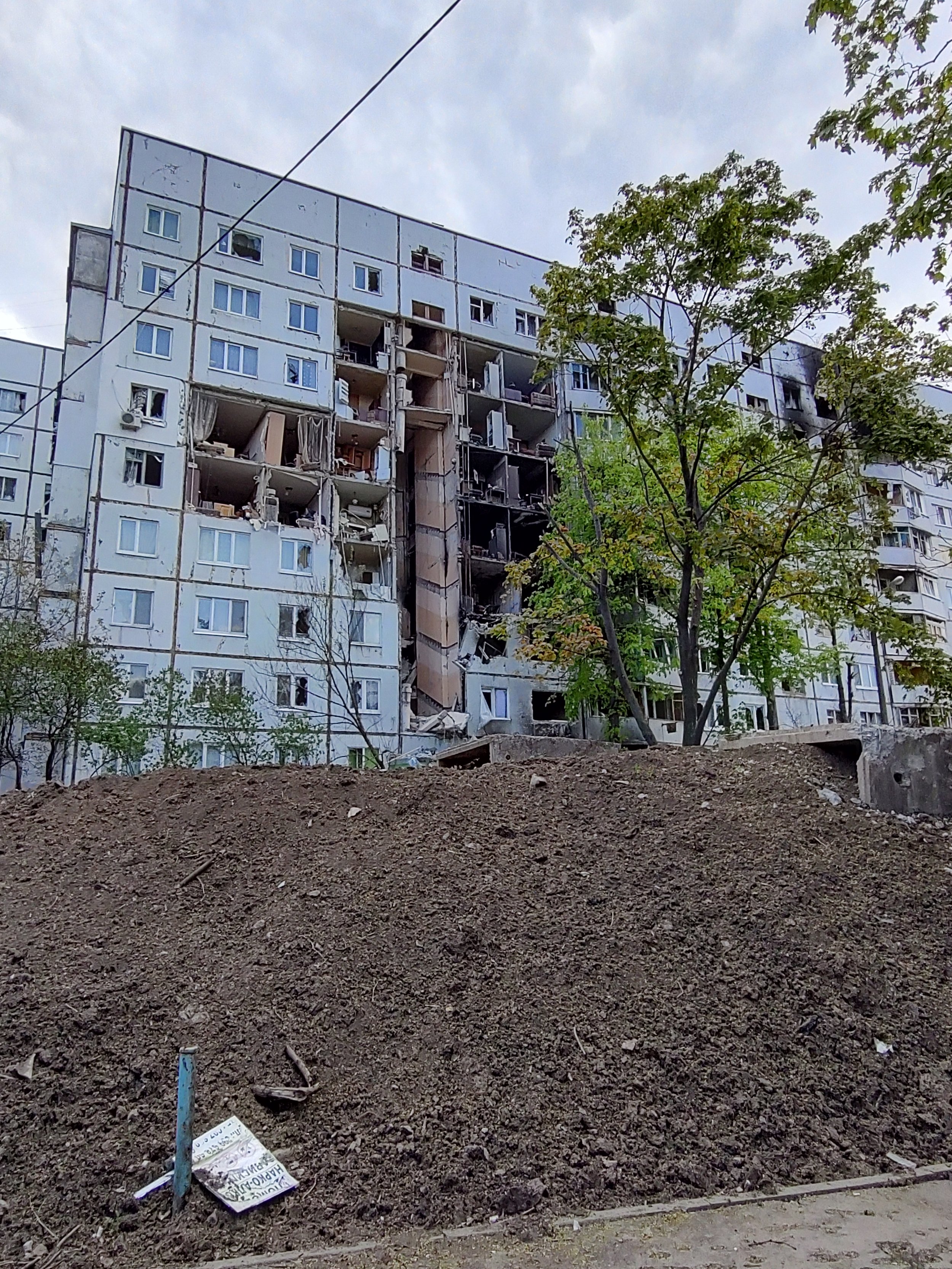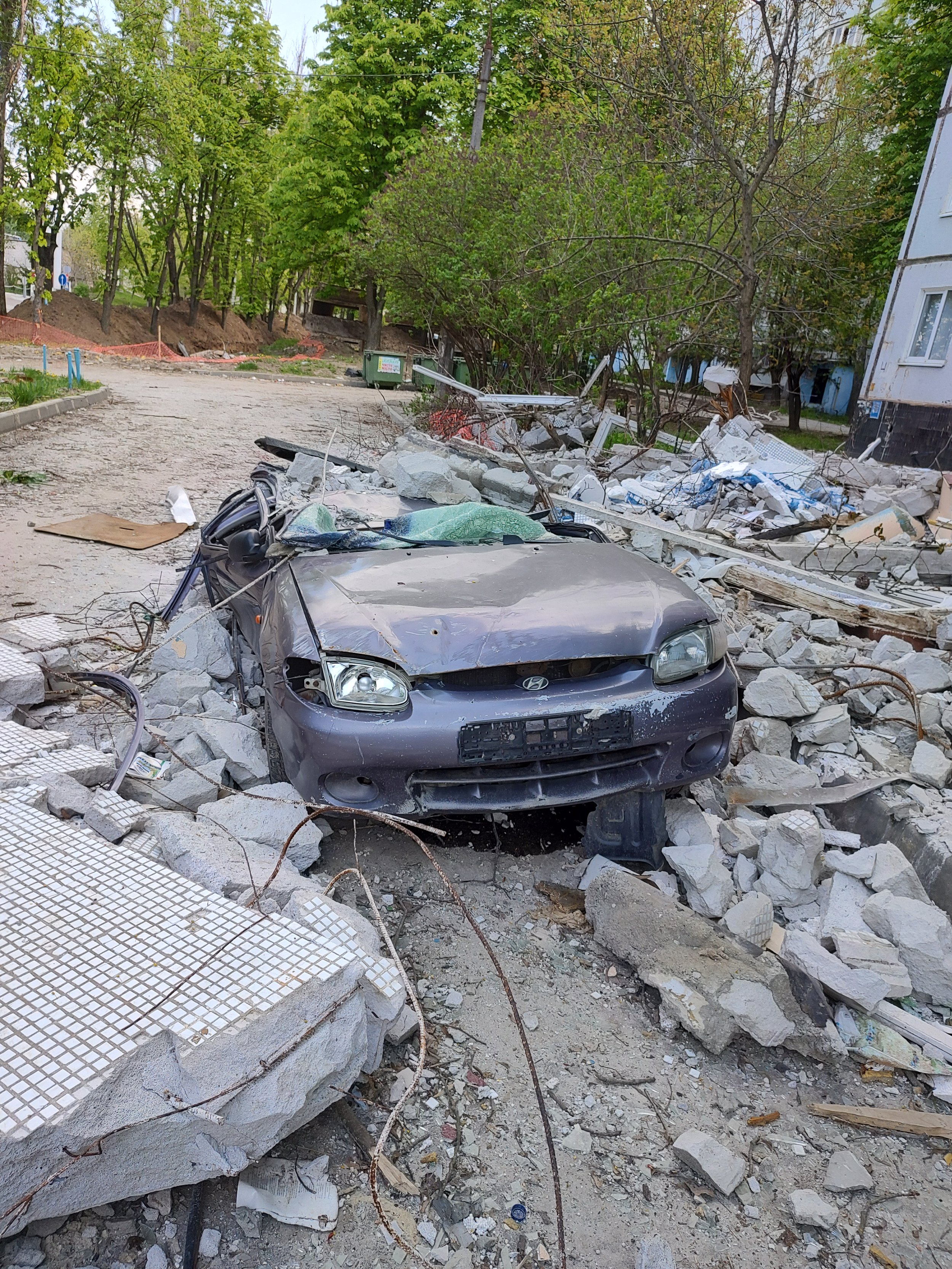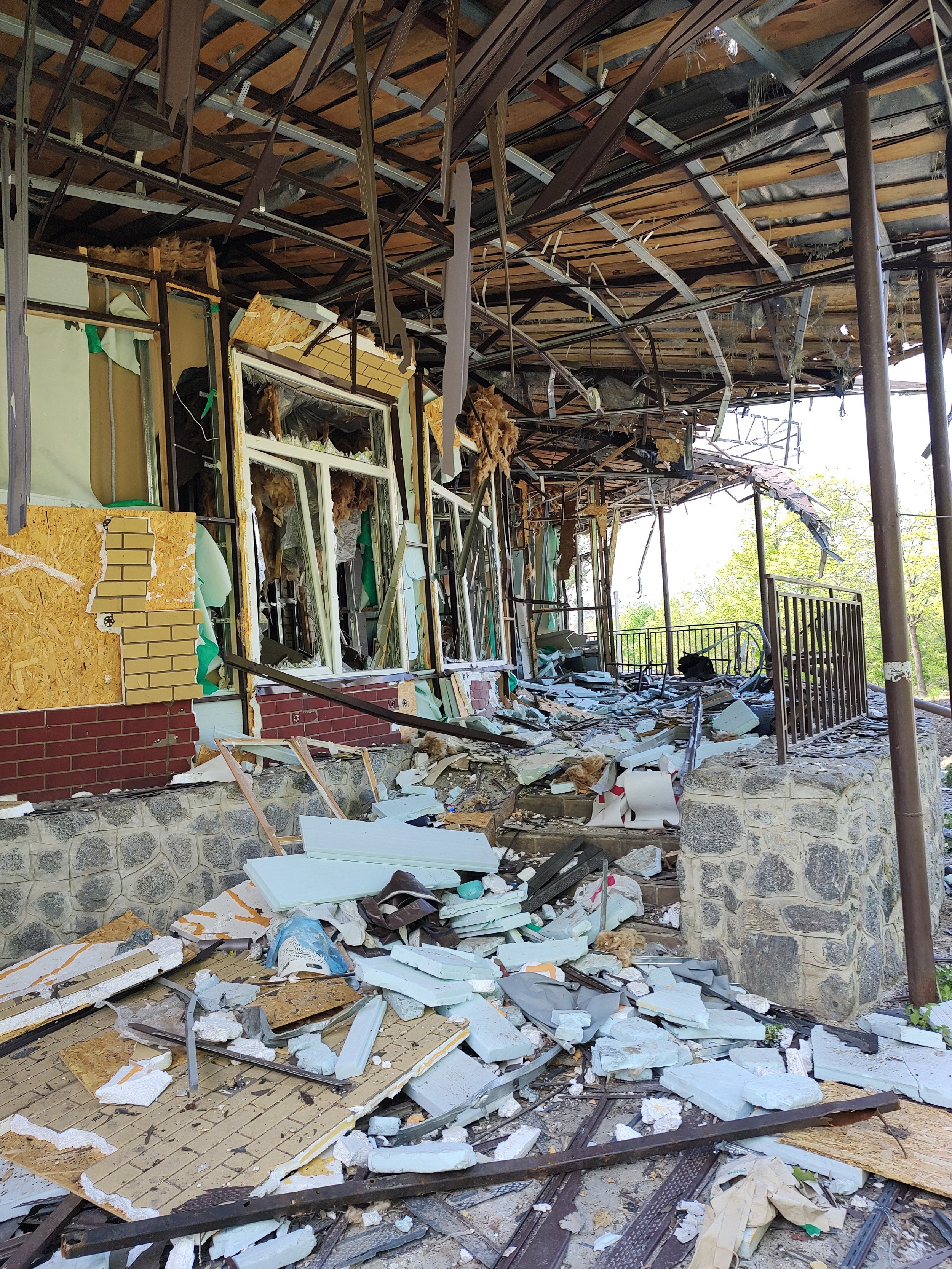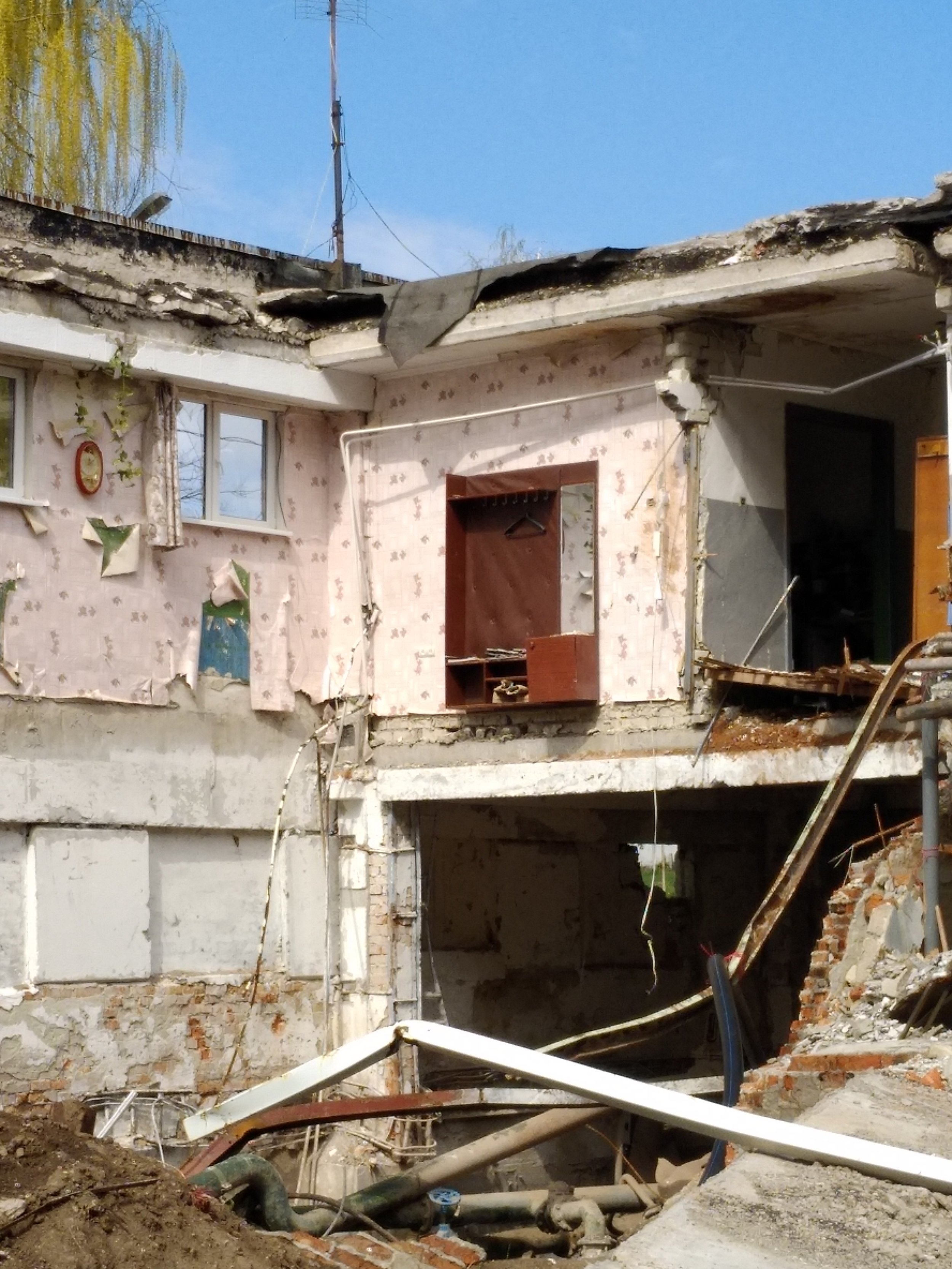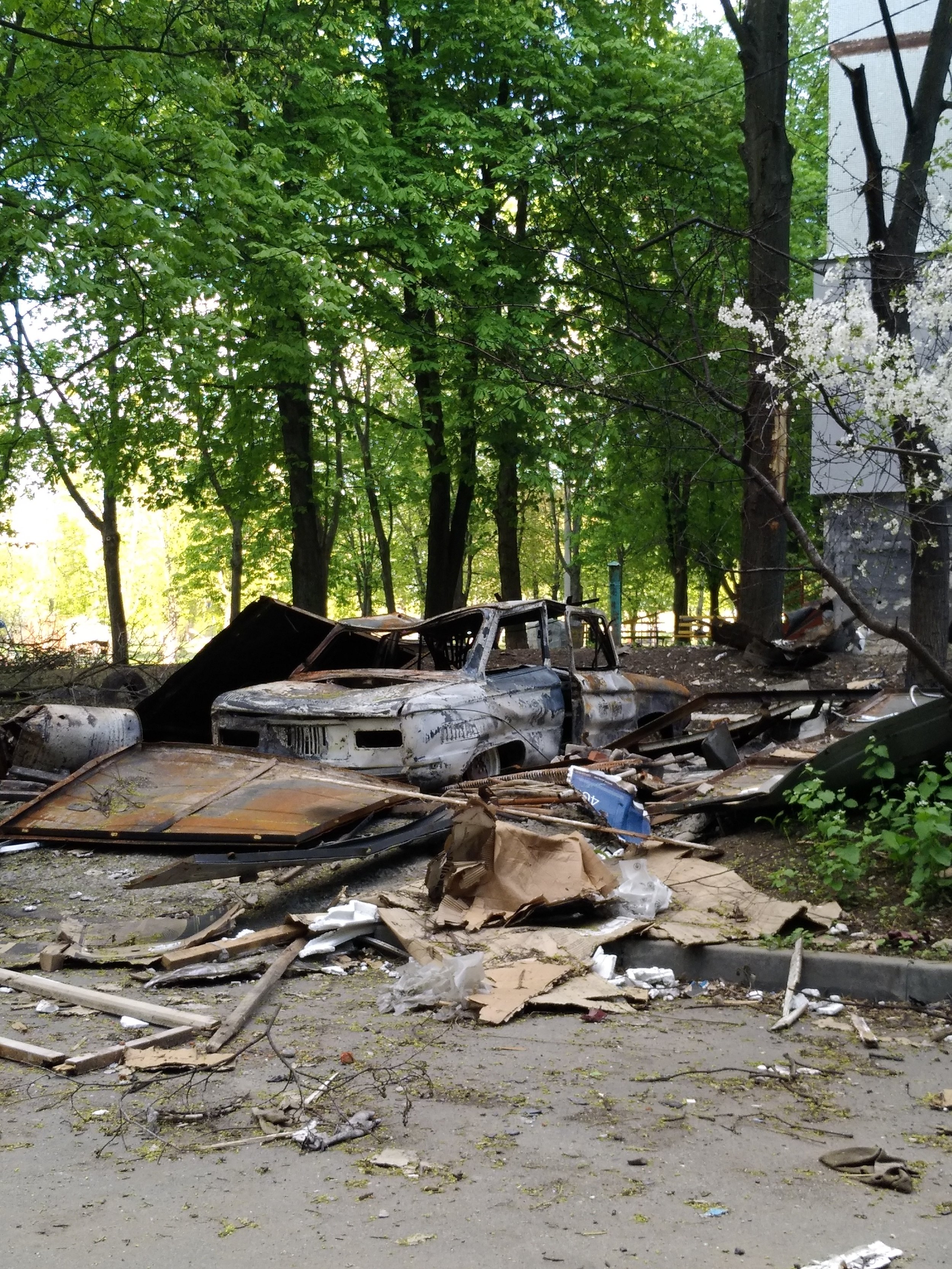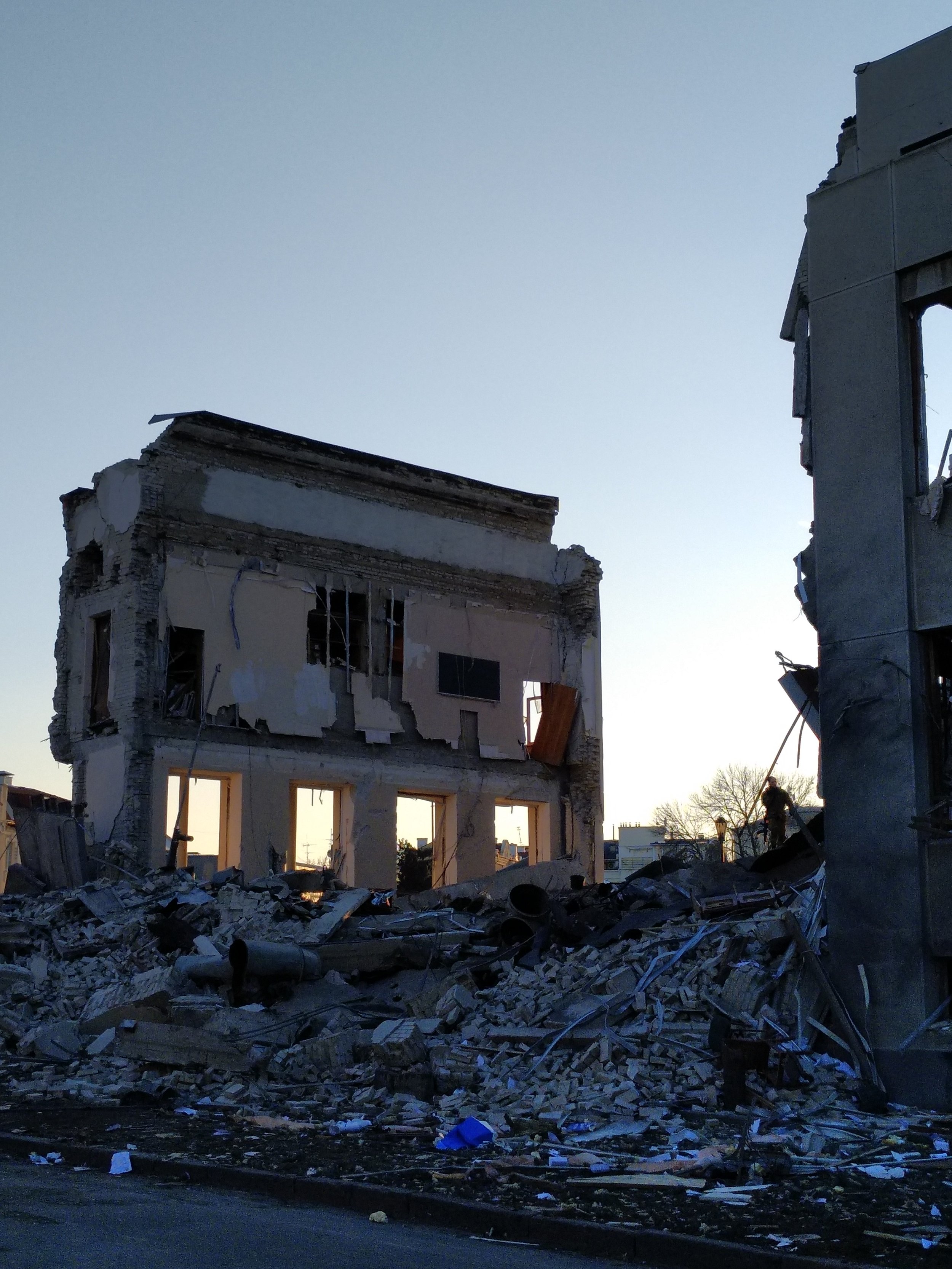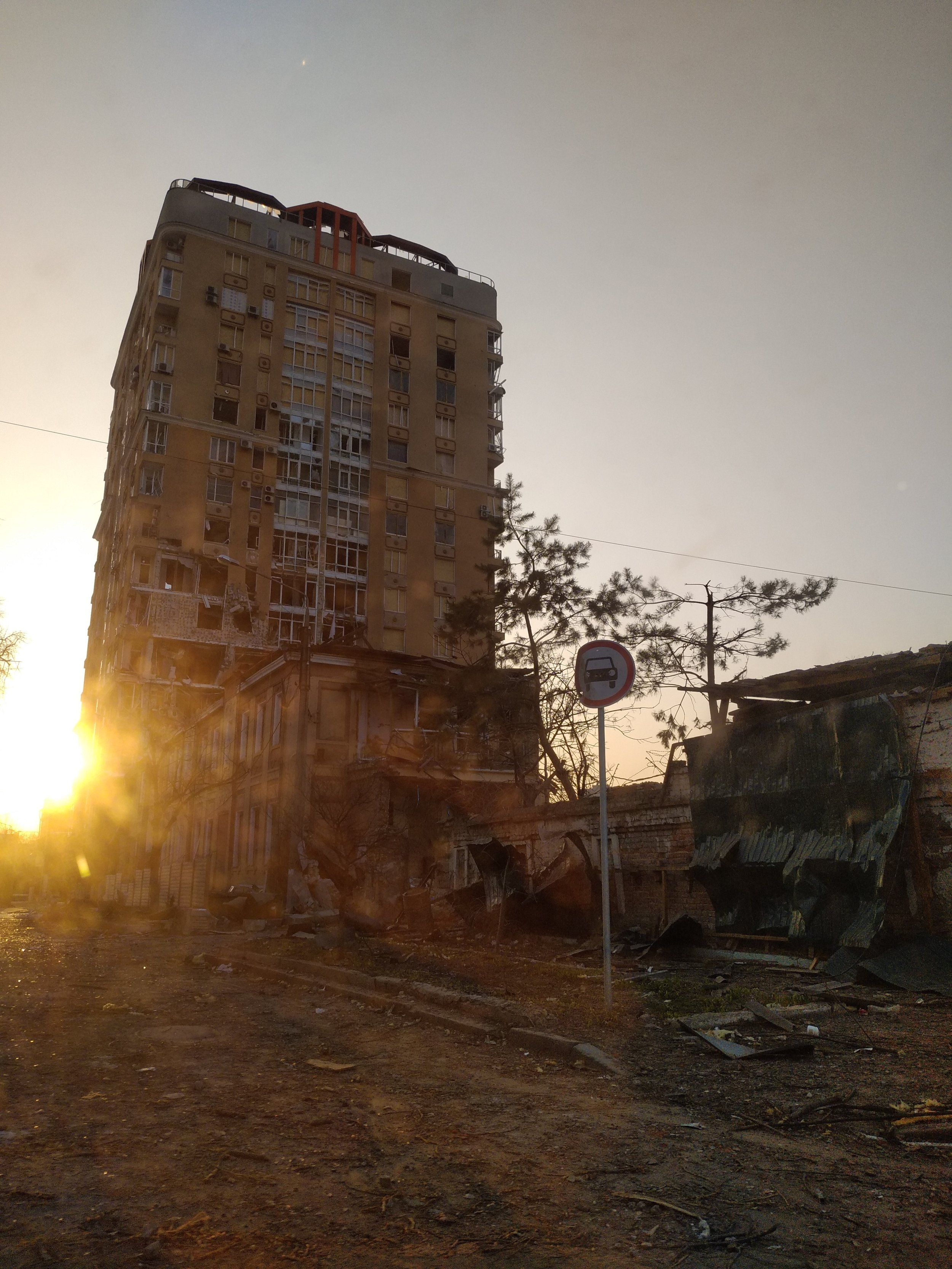“I'm inspired daily by the people of Kharkiv”: An Interview with Yuliya Iliukha
Since the beginning of the full-scale Russian invasion, Yuliya Iliukha, a Ukrainian writer, journalist, author of six children's and adult books, has remained in Kharkiv. Her husband is currently serving in the Armed Forces of Ukraine, and their son has been helping with volunteer efforts since he was a small child.
This spring, Iliukha was supposed to publish three new books, but all of them were postponed due to the war. She spoke with Liliia Shutiak about the overall situation in Kharkiv, how her daily routine has changed, why the people of Kharkiv surprised the world for the better, the need for literature (or lack thereof) during wartime, and more.
You have remained in Kharkiv since February 24, even though many people have fled westward. What does daily life look like there?
Currently, I am moving between Kharkiv and the place not far from the city where I took my son, and at least for the next month, I do not plan to go anywhere because I feel that I can still be useful here. I want to help with something, find necessary items, and pass them along. My husband and his friends are in the Armed Forces. I had to volunteer again, although it’s not something I do effortlessly. I've been doing this since 2014 when the war started. My friend who works in medicine and I started collecting first aid kits and compiling more than five hundred of them. In 2017, we stopped doing it when I realized that the military weren’t calling us up and asking for help. Our work became less necessary. Now I feel that there is a need for this again. I'm still doing it, maybe even a little selfishly, so that I don't spend my days scrolling helplessly through the news feed on my phone.
Have you been able to write anything? Does literature cross your mind, or is it no longer possible to write?
I've only been able to write two poems about the war during this whole period, but it was a struggle. I did not write a single line of fiction. I’ve basically have lost all creative words and ideas; there is no real incentive to sit down and write such texts.
At the same time, I regularly sit down and prepare reports for foreign media about the war in Kharkiv and what is happening throughout the country. It looks like the main responsibility of Ukrainian writers these days is to write something that is not high art but rather to take on the role of a journalist or blogger. Artistic texts, in my opinion, are not needed now.
All my works tend to start with the title and the first line, be it poetry or prose. The first lines for several poems came to me, but I only ended up finishing those two. I realized that I'm unable to write when I’m in Kharkiv. I can't put my words together and I don't have time for that anyway, so from time to time I write small updates on Facebook. I do my actual writing when I return from Kharkiv to see my son and my parents, usually when they are already asleep. We've covered the windows of the house with a thick black cloth which my grandmother bought a long time ago. She died last year, but in a sense, she is protecting us now. So when I arrive I turn on the lamp and work without fear that the light will be visible from the street.
What has it been like to talk to your son about the war and how do you think we should explain to children what is happening in our country?
Long before the start of the invasion, my son told me that he hated all Russians and Russia. His friends are now expressing similar views. After their school lessons in Zoom, I notice that they write to each other some funny poems mocking Putin, quote various phrases or memes about the "Russian warship" and laugh. These are nine-year-old children. They are constantly discussing the topic of war, even those who have just left Ukraine. They exchange stories with those who were bombed and ask whether or not anyone knows their schools are still standing. It is painful to realize that the children of war are no longer our grandmothers' generation, as it used to be, but our children's. They've partially lost their childhoods and are detached from their homes and regular educational process. Ukrainian children now live in foreign cities and countries, and study in schools in a foreign language. It's a very traumatic and stressful ordeal for them.
I wouldn't say that I'm having any particular conversations with my son about the war. He collected first aid kits with us even before the start of the full-scale invasion. My son remembers how helicopters flew over Kharkiv and took the wounded to the hospital. He had understood from an early age who our enemy is and that his father is now in the army to protect not only us, but Kharkiv, and all of Ukraine.
Kharkiv after Russian attacks on the city
Kharkiv is associated with some of the most important figures of Ukrainian literature. Still, at the same time, this city was drawn into the orbit of Russian culture, which overshadowed its Ukrainian roots. Is there a noticeable change in the perception of Kharkiv’s cultural and literary heritage?
Kharkiv didn’t turn out to be the kind of city that the Russian occupants imagined it to be. Traditionally, the Russians considered us a fraternal city, even a partner. Before the new stage of the war, Kharkiv and Belgorod had trade and economic relations. Many Kharkiv residents have relatives there. Therefore, the invaders considered Kharkiv a "Russian city", or, as some people in Ukraine called it, a “city of vatniks.” Now we are witnessing a transformation: those who were neutral before the invasion or considered the Russians friends began to change their rhetoric. This is noticeable even in ordinary people. When we buy something for the guys at the front, we do it mostly at the bazaars. We go there and talk to the sellers. When we say that this is for the army, we are immediately given a big discount. People also tell us their stories. For example, one man said that he works in his shop during the day and volunteers in the evening. Another man, from whom we bought nails, said: “I have a gun, fifty rounds, and a Stafford bull terrier. Surely I'll be able to take down a few Russians if it comes down to that.”
In my opinion, Kharkiv has fully left the orbit of Russian influence and mentality. And it's not just about culture. After what happened in our city, no one has the right to call Kharkiv anything other than a Ukrainian city. A lot of people have played an important role in making that happen over the years, most notably Serhiy Zhadan.
What is the overall mood like in Kharkiv these days?
This will sound cruel, but it must be said: until war affects somebody's house, car, or personal property, they often do not fully understand that this is a war for survival. There are only two options: it's either us or them. If we surrender, we will be destroyed. If they win, they will destroy us. If we sign a peace treaty with the Russians, we will be destroyed. It is absolutely clear that this is genocide, a war of extermination after it was shown what is happening in cities like Mariupol, Borodyanka, and Bucha… Recently, Poltava TV and I went to record an interview with me at my home in Saltivka, a residential area of Kharkiv. I was riding in the car wearing a bulletproof vest. It was pure surrealism! Could I have imagined two and a half months ago that I would walk through Saltivka in a bulletproof vest and run for cover behind a fence at the sound of shelling?
The lives of people in Kharkiv have changed dramatically. In the most affected areas–including Saltivka–none of the supermarkets or other shops are open. They can't operate because many of them were destroyed during the shelling. These were places I and many others used to visit daily. Black smoke is a common phenomenon in our city. It means that a Russian shell has arrived yet again and something is burning. Due to the lack of steady income, non-functioning public transport and closed shops throughout the city, there are huge queues for humanitarian aid every day. People risk their lives and take their place in these queues from the night when the curfew lasts and it is impossible to go outside.
Many apartments have been hit not once but several times. Some of them are completely destroyed, others only partially, and you can see the interiors. I call it “twisted lives.” In such cases, people cover the missing walls in their homes with sheet wrap and continue to live there as best they can. A home is a home, after all.
Everyone is so used to the air raid siren that they hardly pay attention to it. Since the start of the invasion, there has never been a day without it. The air raid siren usually goes off ten times a day or more. Honestly, I don't count them. The usual picture in Kharkiv is the sounds of explosions or the work of Ukrainian air defense, and at this time children and adults continue to walk in the yard. People hide only when explosions are heard very close. One day my friend and I were hiding under the stairs in the entrance of my house, because there was a terrible thundering sound just in the yard, and when everything calmed down and we went out, we saw a man who was walking a dog at that time. I would like to think that all this is just a nightmare from which you can wake up, but this is our life now.
These days monuments to Russian historical figures are being actively demolished not only in Kharkiv but all across Ukraine, streets are being renamed, and everything related to Russian history is being cast aside. Could you explain why this is significant?
When Russian bombs fall on Moscow Avenue or Pushkin Street in Kharkiv, these names become a form of parody. A bust of Pushkin still stands in the Poetry Square in Kharkiv. He only wrote about Kharkiv once, remarking contemptuously in his diary that Kharkiv National University “was not worth a restaurant in Kursk.” Why do we need him?
We have the Slovo House in Kharkiv which was home to Ukrainian poets such as Leonid Pervomaisky, Maik Yohansen, Mikhail Semenko and others. The fate of many of them was tragic: they were arrested and shot during the Stalinist purges. This generation of writers is known collectively today as the Executed Renaissance. The Russians bombed the Slovo House early on in the invasion, by the way.
We should have always focused on celebrating such figures important to Ukrainian history and culture instead. There is no place for Russian culture in our city, or any other Ukrainian city, when the Russians are still actively trying to wipe us out.
You often communicate with foreigners in your work as a journalist. What do they say and how do they perceive the war in Ukraine?
Foreign journalists often do not understand the full scope of what is happening in our country. Sometime in early March, a Russian missile hit the regional military administration, and before that the Russians fired on Pavlove Pole, a residential district, and one of the first victims was found in Kharkiv. At that time, a Polish journalist asked me to write a story about cultural life in Kharkiv during wartime, to which I replied that there is no culture whatsoever in the city now. Kharkiv is living through round-the-clock hell. Then I realized that even if journalists say that, then ordinary people in Europe do not realize that we have a real war, not some footage from a film. These are real explosions, real blood, people are dying daily.
What most westerners think of war is like something out of Remarque's novels. That is, they imagine a war is going on somewhere, but people still manage to go to theaters, cafes, drink calvados, and walk along the Seine. We do not have that luxury in Kharkiv. All the supermarkets have been bombed in my district. Coffee can be drunk in one of the few places that works on the waterfront, where there are special vans. Otherwise 99% of cafes and restaurants are closed. This is not a Remarque novel, where the war is terrible, but depicted beautifully. This is a war where explosions go off behind you, where buildings are burning and rockets can fly into your home. My apartment was smashed to pieces, and the balcony was sprinkled with shards of glass. Only ten people remain in my eleven-storey building.
I know that you were supposed to publish new books before the invasion. Do you think books written before the invasion will still be relevant after Ukraine’s victory?
Children's books will always be relevant. They always need something to read, even during wartime. What’s more, their books are built on universal themes and plots. It's a different situation altogether for adult books. Those written before the new stage of the war are most likely obsolete. This is what happened, in particular, to my unpublished novel about a girl who travels from the anti-terrorist operation zone to a peaceful Kharkiv, as she did in her past life. I don't know what to do with this book. Do I finish it or just forget about it? It seems to me that such a novel has simply lost its relevance. I haven’t yet decided what to do with it. At the very least, it is necessary to rewrite large parts of it.
Two of my children’s books and one YA book were meant to be published in the spring. I hope at least one of them will be released electronically.
What can you take away from all of this suffering?
Many things. I’m inspired daily by the people of Kharkiv, that is, ordinary people who stepped up under incredibly challenging circumstances. By my husband, who said that he was fortunate to be taken into the ranks of the Territorial Defense Forces of Kharkiv, while others were not—there are still many who are waiting to join, by the way. I’m inspired by the volunteers evacuating people from Northern Saltivka under heavy fire or those serving hot lunches to the military. By the sellers in the bazaars who offer discounts when they find out you’re buying something for the military. By the owners of showrooms who donate a part of their proceeds to the army' and ends each message with the words “Glory to the Armed Forces!” Most of all, I'm inspired by my son, who is waiting for victory, and to be able to return to his room.
Interviewed by Liliia Shutiak
Translated by Kate Tsurkan
Photographs of Kharkiv provided by Yuliya Iliukha
